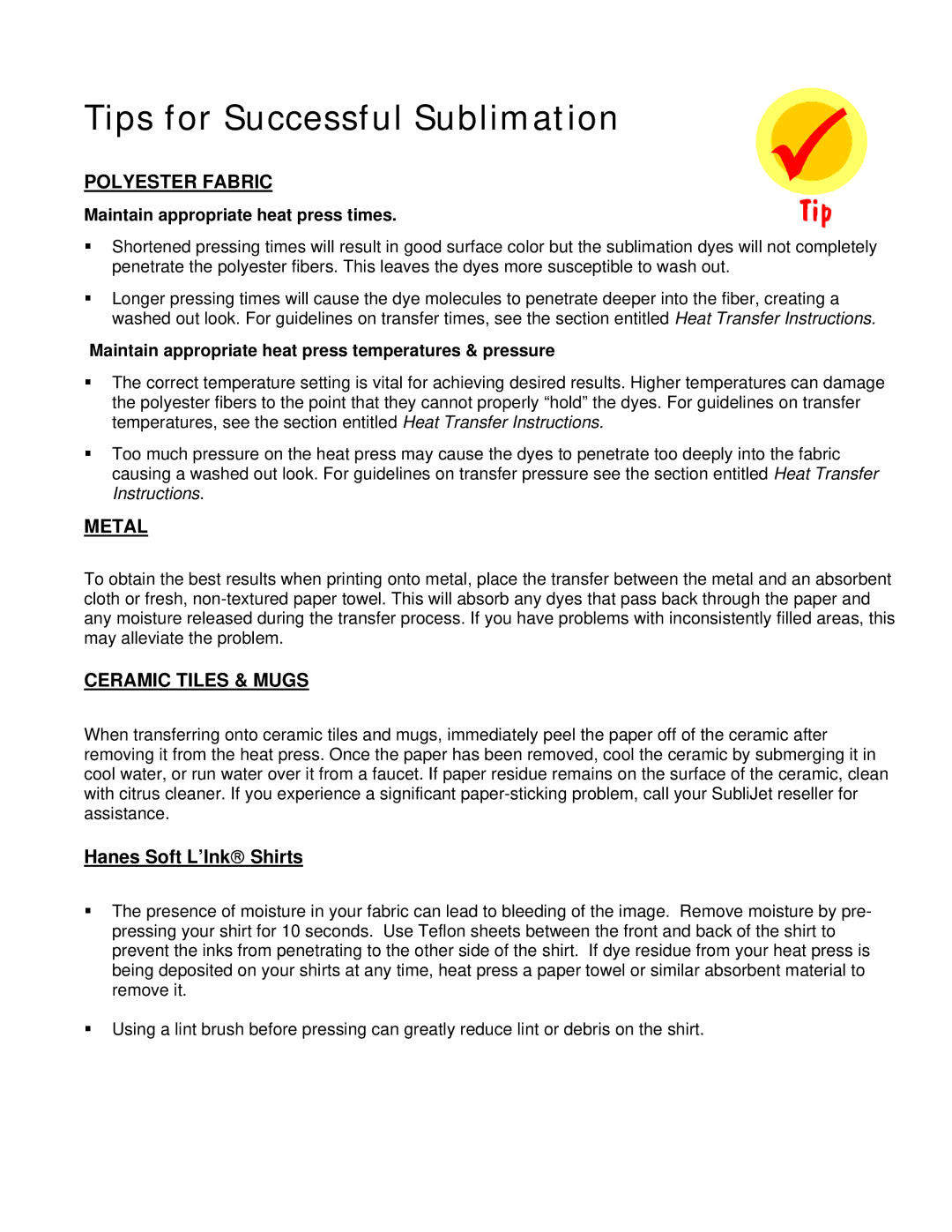
Tips for Successful Sublimation
POLYESTER FABRIC
Maintain appropriate heat press times.
Shortened pressing times will result in good surface color but the sublimation dyes will not completely penetrate the polyester fibers. This leaves the dyes more susceptible to wash out.
Longer pressing times will cause the dye molecules to penetrate deeper into the fiber, creating a washed out look. For guidelines on transfer times, see the section entitled Heat Transfer Instructions.
Maintain appropriate heat press temperatures & pressure
The correct temperature setting is vital for achieving desired results. Higher temperatures can damage the polyester fibers to the point that they cannot properly “hold” the dyes. For guidelines on transfer temperatures, see the section entitled Heat Transfer Instructions.
Too much pressure on the heat press may cause the dyes to penetrate too deeply into the fabric causing a washed out look. For guidelines on transfer pressure see the section entitled Heat Transfer Instructions.
METAL
To obtain the best results when printing onto metal, place the transfer between the metal and an absorbent cloth or fresh,
CERAMIC TILES & MUGS
When transferring onto ceramic tiles and mugs, immediately peel the paper off of the ceramic after removing it from the heat press. Once the paper has been removed, cool the ceramic by submerging it in cool water, or run water over it from a faucet. If paper residue remains on the surface of the ceramic, clean with citrus cleaner. If you experience a significant
Hanes Soft L’Ink® Shirts
The presence of moisture in your fabric can lead to bleeding of the image. Remove moisture by pre- pressing your shirt for 10 seconds. Use Teflon sheets between the front and back of the shirt to prevent the inks from penetrating to the other side of the shirt. If dye residue from your heat press is being deposited on your shirts at any time, heat press a paper towel or similar absorbent material to remove it.
Using a lint brush before pressing can greatly reduce lint or debris on the shirt.
